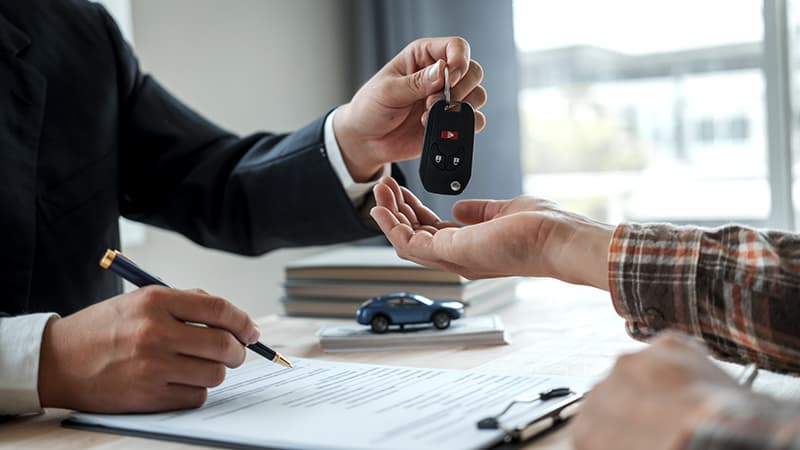
Despite having a well-developed public transport network, many people in Thailand still prefer driving their own cars, including foreigners who have called the country home. For many expats, owning a car in Thailand is a convenience and a means to explore the country more thoroughly. This guide will walk you through the essential steps to buying a car in Thailand as a foreigner, ensuring a smooth experience.
Why buy a car in Thailand
Having a car in Thailand provides the freedom to travel at your own pace, without depending on the often-unpredictable public transportation system. While cities like Bangkok have extensive public transport systems, other areas may not be as well-served. With your own vehicle, you can explore the country more comfortably and efficiently. For those with young children or multiple pets, a car is essential for running errands and is much more convenient than public transportation or hailing options.
Understanding the Thai car market
The Thai car market offers a variety of new and used vehicles for different budgets. Popular brands like Toyota, Honda, and Isuzu dominate the new car market with their reliability and service networks. The used car market is also thriving, with many affordable options that hold their value well. Online platforms and local dealerships provide numerous choices for buyers.
In recent years, the electric vehicle (EV) market in Thailand has also been growing rapidly. Popular EV brands include BYD, Tesla, MG, and GWM. These brands offer a range of models that cater to different needs and budgets, making it easier for consumers to switch to more sustainable transportation options.
Essential documents for foreigners to buy a car
To buy a car in Thailand as a foreigner, you’ll need to gather several important documents. These include:
- A valid passport, both original and photocopies.
- A copy of a valid visa. Ideally, this should be a Non-Immigrant Visa; you can buy a car on a tourist visa, but the car won’t be registered under your name.
- Work permit or a residence certificate. It is advisable to submit both documents, if possible, to ensure all necessary documentation is covered.
How to get a residence certificate
A residence certificate is used to prove your domicile in Thailand. The Immigration Bureau issues this document and is necessary for various legal processes, including buying a car. It verifies that you reside at the address you claim, which is essential for the registration of the vehicle in your name.
To obtain a residence certificate, you’ll need to visit your local immigration office with the following documents:
- Your passport and copies of the info page and visa page
- A signed copy of your TM.30 form
- A copy of your lease agreement or house book
- Two passport-size photos
The certificate is typically valid for 30 days, so plan accordingly to ensure it is current when you need it.

Steps for purchasing a car in Thailand
The process of buying a new car in Thailand is quite similar to purchasing one anywhere else. The main difference lies in the specific documents and procedures required for foreigners. Here’s a step-by-step guide to buying a car in Thailand:
- Identify your needs and research car models online, in magazines, as well as at dealerships. Make a shortlist and test-drive the models you’re interested in
- Set your budget, including down payment and monthly instalments. If you need financing, compare interest rates and loan terms from different banks. Get pre-approved for a loan if you plan to finance the car before visiting the dealership to streamline the process.
- Visit authorised dealerships to explore car models and schedule test drives to evaluate performance and comfort.
- Compare offers from multiple dealerships, negotiate the price, and discuss discounts and promotions if available.
- Once you’ve agreed on a price, submit the necessary documents to the dealership.
- Carefully review the sales contract to ensure all terms are clear and acceptable.
- Complete the paperwork and make the payment, including the down payment and any other agreed-upon costs.
For second-hand cars, ensure the ownership transfer is completed at the DLT to legally register the vehicle in your name.
Car insurance for foreigners
In Thailand, car insurance is divided into compulsory car insurance (Por Ror Bor) and voluntary insurance. The compulsory insurance is mandatory for all vehicles and covers injuries or deaths caused to third parties. It’s also required for renewing your car tax each year.
Voluntary insurance offers more comprehensive options, ranging from Type 1, which covers accidents, theft, natural disaster, fire, and third-party liability, to Type 3, which provides basic third-party liability coverage.
Ready to find the ideal car insurance? Check out our comprehensive guide on the different types of car insurance in Thailand and make an informed decision today.
When choosing car insurance, start by assessing your needs based on your vehicle’s value and driving habits. It’s recommended to compare quotes from multiple providers to find the best coverage and premiums. Research the reputation for customer service and claims processing of the insurance provider. Make sure you thoroughly understand the policy details, including what is covered and excluded. Additionally, consider policies that offer extra benefits like roadside assistance and no-claim bonuses to enhance your coverage.
Final Thoughts
Now that you’re equipped with this knowledge, it’s time to take the next steps towards owning your own car in Thailand. Don’t forget to secure the best car insurance to protect your investment. Contact Roojai for comprehensive car insurance policies tailored to your specific needs.
Stay updated with the latest news, expat guides, insurance tips, and more by following Roojai on Facebook. You can also connect with us on LINE by adding our official ID: @roojai. Click here to add us as a friend!
Frequently asked questions
Can foreigners buy cars with instalments in Thailand?
Yes, expats can buy cars in instalments in Thailand. Foreigners have several options for financing a car purchase including:
- Bank financing: Major banks like SCB, Krungsri, and Bangkok Bank offer car loans to foreigners. You’ll need a local bank account, a valid visa, and a work permit or residence certificate.
- Car dealer financing: Many car dealerships provide financing options directly. This can be convenient but may come with higher interest rates.
- Leasing: Some companies offer leasing options, which can be a flexible alternative to traditional loans.
To qualify for a loan, a Thai national must serve as a guarantor, providing their salary documents, a company certificate with at least one year of work experience, and bank account statements for the past six months or more.
Can I drive in Thailand with an international driver’s licence?
Yes, you can drive in Thailand with an international driver’s licence, but it’s recommended to obtain a Thai driver’s licence if you plan to stay long-term.
Is it expensive to own a car in Thailand?
Owning a car in Thailand can be relatively expensive due to high import duties and taxes. Additionally, costs for fuel, maintenance, insurance, and tolls can add up. On average, you might spend around 7,000 to 10,000 THB per month for these expenses.
Why does Thailand drive on the left?
Thailand drives on the left side of the road due to historical British influence. The first car in Thailand was a gift from the British Royal Family, and the country’s road infrastructure was modelled after British standards.




